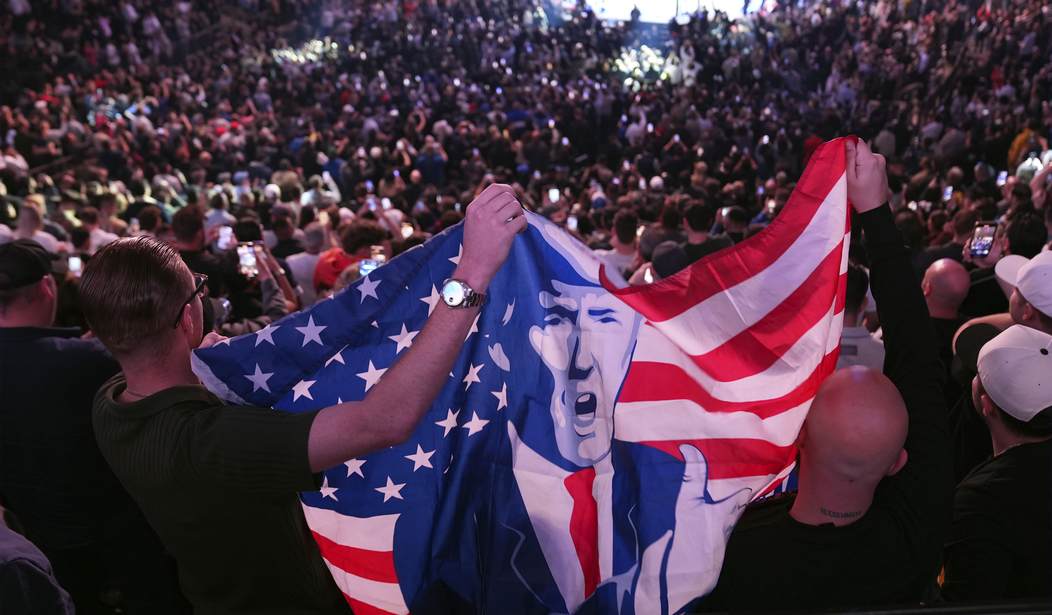I'm going to forego the valid argument that PBS and NPR -- given that they're taxpayer-supported (vs. completely taxpayer-funded, as some believe) -- should be required to present truly fair and balanced reporting and cut to the chase on the latest example of anything but on last Wednesday's episode of the "PBS News Hour."
Laura Barrón-Lopez, arguably PBS’s most biased reporter -- and that's saying a lot -- hooked up with Yale University Professor Jason Stanley, who has been whistling into the wind for at least six years about President-elect Donald Trump being a "fascist" and all kinds of other awful things trashing Trump.
Did I mention that Stanley is the author of the 2018 book, "How Fascism Works"?
Guest anchor William Brangham kicked off the histrionic festivities by priming the audience with scary words before the segment (emphasis, mine) began: "Still to come, how Donald Trump's reelection fits into a broader acceptance of authoritarian leadership." The words "Extremism in America" appeared on a chyron under a picture of Trump as Brangham continued to spew.
President-elect Donald Trump ran a lot of his campaign promising retribution for his enemies and asking absolute loyalty from his supporters. Now, as he prepares for a second term in office, Laura Barron-Lopez has a look at what that might mean for the future of U.S. democracy.
Next up, Barrón-Lopez kicked up the craziness a couple of notches.
William, according to the Associated Press, 55 percent of voters said they were very or somewhat concerned that Trump would steer the U.S. toward becoming an authoritarian country, one where a single leader or small group has unchecked power. Still, more than one in 10 of those voters supported him anyways. [sic]
To discuss this further, I'm joined by Jason Stanley, professor of philosophy at Yale University and author of "Erasing History: How Fascists Rewrite the Past to Control the Future."
Professor Stanley, thank you so much for joining. Why did voters on one hand acknowledge and express fear that the country could very well tip towards authoritarianism under Trump, but then on the other hand still vote for him?
Good last question, assuming that you buy the notion that going into the election, 55 percent of voters believed Trump would become an authoritarian dictator. Yet, a late November CBS News poll found that 59 percent of Americans approve of Trump’s moves in the weeks following his historic election win.
Stanley then jumped in, further propagating the ridiculous notion America is no longer interested in democracy.
The idea that democracy is a value upon which voters vote or place enormous priority on is false.
Voters prize a number of things over democracy, especially voters who have regularly lived in a country where you can replace leaders and parties by elections. The idea that democracy should be a value, well, that's something that schools and universities teach. That's something we try to emphasize, but it doesn't mean that people are born that way.
Hold the bus.
The idea that real democracy is promoted in the no-longer-hallowed halls of academia is preposterous.
We're talking about far-left professors who preach the "virtues" of DEI -- Diversity, Equity, and Inclusion -- which is hardly synonymous with democracy. People like Stanley, who live in a delusional bubble, have zero business preaching to the American people about his warped concept of democracy.
Barrón-Lopez then trotted out the worn-out lines that didn't work for Kamala Harris and Democrats throughout the presidential campaign.
President-elect Trump has openly embraced a number of strongman leaders, including Hungarian Prime Minister Viktor Orban. Trump has also said that he would be a dictator for a day. He has expressed a desire to seek revenge against his political enemies, and he's also threatened to use the military against civilians during times of civil unrest. If Donald Trump ends up governing like a strongman, what does that mean for the future of democracy?
My purpose in bolding selective portions of the above block quote was twofold.
First, everyone in the known universe knows that Donald Trump is often given to hyperbole. In reality, if he were also given to actually acting on any of the above, it's beyond reasonable to assume that we would have seen at least some of that during his first administration.
Second, speaking of authoritarian leadership, two words: Joe Biden.
Speaking of Authoritarian Leadership
Needless to say, today's news (as I write) is dominated by the hardly shocking news of President Joe Biden's sweeping pardon of his crackhead, tax-cheating, born on third base and thinks he hit a triple, lying son, Hunter Biden.
Widely respected George Washington University Law School Professor Jonathan Turley said it best.
[W]hen you become president, your role is to put the nation first, and here we have a president who is putting his family first. This is a president who didn't just simply lie about not ever speaking to his son's business associates, of never being in meetings with them. But he lied repeatedly to the American people when he was a candidate for reelection.
What did America expect?
Biden has consistently lied throughout his more than 50 years in Washington, D.C. He entered the presidency as a serial liar, and he's leaving the presidency with arguably not only the most significant lie of his life but also a significant part of his bankrupt legacy.
RELATED: Jonathan Turley Rips Biden's Pardon of His Son to Shreds
As for the incoming 47th president of the United States, Donald J. Trump can't hold a candle to the lies and the intentional harm to America visited on us by the Biden-Harris administration.
Make America great again, indeed.













Join the conversation as a VIP Member